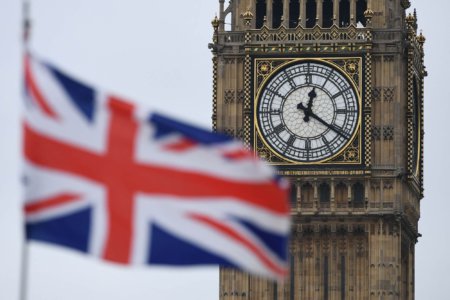
The UK government is cracking down on “Mickey Mouse” degrees — or university degrees that offer little value to students. Watchdog Office for Students (OfS) is threatening to slap universities and colleges in England with fines and restrictions on their access to student loan funding in their bid to eliminate these “low-quality” courses.
The independent regulator for higher education also warned that universities and colleges not meeting requirements for minimum acceptable student outcomes could face investigation. University degrees targeted by the OfS include those with high drop-out rates and low rates of graduate employment.
The OfS has set out thresholds for full and part-time students at both undergraduate and postgraduate level. This includes requiring courses to send at least 60% of students to go into professional employment or further study; 80% of students to continue into the second year of study; and 75% of students to complete their qualification.
“Students studying on courses below the thresholds are often from groups underrepresented in higher education and the OfS’s proposals are designed to ensure that providers must support the students they recruit to achieve positive outcomes, regardless of their background,” it said in a press release today.
OfS chief executive Nicola Dandridge said: “Many universities and colleges in England run high-quality courses that deliver positive outcomes for students. The thresholds that we have proposed will not affect them. They are instead designed to target those poor quality courses and outcomes which are letting students down and don’t reflect students’ ambition and effort.”
Higher and Further Education Minister Michelle Donelan said: “Students deserve an education that will help them achieve their dreams, so we need to crack down on those universities that are not delivering this ambition. Our university system is acclaimed as world-class, but there are too many pockets of poor quality.”

OfS chief executive Nicola Dandridge said the thresholds that they have proposed are designed to target poor quality courses and outcomes which are letting students down and don’t reflect students’ ambition and effort. Source: Damien Meyer/AFP
UK university degrees: Will gov’t crackdown benefit students?
While colleges and universities in England are under pressure to do something about their “low-value” courses, what constitutes a “low-value” course remains up for debate. Universities UK — the collective voice of universities in England, Scotland, Wales and Northern Ireland — said universities should use several “core measures” to weed out low-value university degrees.
Formulating a list of eight “core metrics”, Universities UK recommends its members in England integrate at least one indicator from each of three thematic areas into degree reviews, reported University Business.
Their recommended core metrics include the numbers that progress to high-skilled employment, continuation rates and student satisfaction scores and covers student and graduate views, student outcomes and graduate prospects. This can help institutions identify university degrees that could be subject to concern and lead them to conduct a thorough investigation, the report said.
Speaking to Dazed, Aamani Fahiya, who is studying styling and production at London College of Fashion, said:” I guess in this capitalistic society that we’re living in, you can’t even choose what course you do at uni unless it benefits the economy.”
The 19-year-old is also concerned about how ministers plan to ascertain what is a “low-value” course or how universities will quantify a “contribution to culture”. “Different people value things differently, so for a few people to determine some people’s passions’ unvaluable’ is unfair,” she was quoted saying. “It’s just a small minority dictating what’s valuable using their personal opinions and preferences.”










